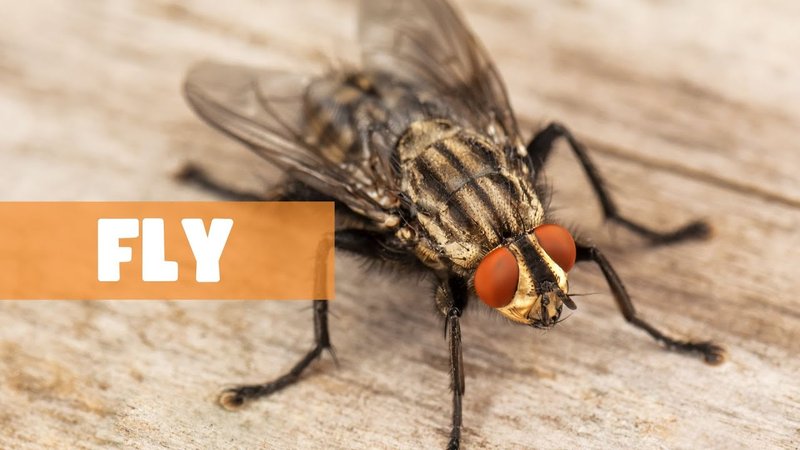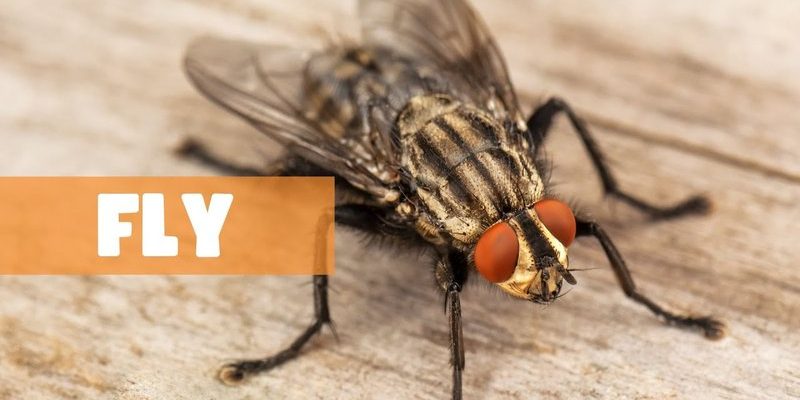
So, what do flies actually do in the grand scheme of things? From contributing to decomposition to aiding in pollination, flies have their wings in many pies. In this article, we’ll dive into the many roles flies play in ecosystems, the different types of flies, and why we should appreciate them a bit more—despite their sometimes annoying habits.
Understanding the Different Types of Flies
Flies are a diverse group of insects belonging to the order Diptera, which literally means “two wings” in Greek. While you might think of houseflies or fruit flies, there are actually thousands of species out there. Here are a few notable types:
- House Flies: These are the ones we often swat at. They thrive in urban areas and can be found buzzing around our homes.
- Fruit Flies: These little guys are often attracted to ripe or rotting fruit. They’re common in kitchens and are used in scientific research due to their rapid reproduction.
- Bottle Flies: Known for their striking green or blue metallic bodies, these flies are often found around decaying matter. They are important in decomposition.
- Mosquitoes: Though often seen as a nuisance, they play a role in the food chain, providing meals for birds and bats.
Each of these flies has its unique contribution to the ecosystem, from breaking down organic matter to acting as pollinators. Understanding the different types helps us see how they fit into the larger picture.
The Decomposers: Flies in the Process of Decay
Flies are nature’s little cleanup crew, especially when it comes to decomposition. When animals die, the process of breaking down their bodies begins, and this is where flies, particularly bottle flies, come into play. They’re often the first to arrive, laying their eggs in decaying flesh.
As the larvae, commonly known as maggots, hatch and feast on the decomposing material, they help speed up the breakdown process. This may sound a bit gross, but it’s vital. Without flies, dead animals would pile up, and nutrients would remain locked away, never returning to the soil.
In a way, we owe a lot to flies for recycling nutrients back into the ecosystem. They help keep our environments clean and functioning smoothly. It’s a bit like having a really dedicated and efficient garbage collection service!
Pollination: Flies as Unexpected Helpers
When we talk about pollinators, we often think about bees and butterflies. However, flies are also important players in the pollination game. Many flowers, especially those that bloom in the spring, rely on flies for reproduction.
Flies are attracted to sweet-smelling flowers that might not have the flashiness of traditional pollinators. For example, hoverflies mimic the look of bees and are both excellent at pollination and decomposing organic matter. They visit flowers to feed on nectar and, while doing so, transfer pollen from one flower to another.
This mutual relationship benefits both the flies and the plants. Flies get food, while plants reproduce and create seeds for the next generation. It’s a win-win situation, showcasing the interconnectedness of life in any given ecosystem.
Flies in the Food Web
Flies don’t just help decompose waste and pollinate plants; they also serve as an essential food source for many animals. Birds, bats, amphibians, and many insects depend on flies for their survival. Think of flies as a vital link in the food chain, providing nourishment for various predators.
For instance, young birds rely heavily on insects, including flies, during their growth stages. The presence of flies boosts the populations of these predators, which can ultimately affect the balance of the ecosystem. If flies were removed from the equation, many of these species would struggle to find food, leading to potential declines in their populations.
This intricate dance of dependency highlights how every creature, even the ones we might find annoying, plays a role in maintaining the balance of nature.
The Role of Flies in Human Activities
Believe it or not, flies also contribute to human life in ways we might not consider. In agriculture, certain flies can be beneficial for pest control. They serve as biological agents that help regulate the populations of harmful pests, reducing the need for chemical pesticides.
Moreover, scientists study flies like fruit flies in genetics and behavioral research. Because they reproduce rapidly and have a short life cycle, they provide insight into various biological processes. This has significant implications for medicine and understanding human genetics.
In essence, flies can help improve our farming practices and advance our scientific knowledge. It’s amazing to think that such tiny creatures can have such a big impact on human progress!
Conservation and the Importance of Flies
In recent years, conservation efforts have started to focus not just on cute and charismatic megafauna (think pandas and tigers), but on insects like flies. Their decline can signify larger ecological problems. If fly populations diminish, we may face disruptions in decomposition, pollination, and the food web.
You might be wondering how we can help preserve flies. One way is to create friendly habitats. Planting a variety of native flowers in your garden can attract different species of flies, providing them a place to thrive and contribute to local biodiversity.
Furthermore, reducing pesticide use not only helps protect flies but also nurtures the entire ecosystem. Healthy ecosystems rely on the complex interactions of all species, including those tiny flies that often go unnoticed.
So, next time you swat at a fly buzzing around, take a moment to think about all the important work that little insect is doing. Flies are not just nuisances; they are key players in maintaining ecological balance. From aiding decomposition to supporting agriculture and enriching our ecosystems, the role of the fly is far more significant than we often realize.
If we can foster a healthy environment for flies, we’re ultimately promoting a healthier planet. It might not always be easy, but taking small steps to appreciate and protect these creatures can lead to big changes in our ecosystems. Flies deserve a little love; after all, they’re doing their part for the world we all share.

